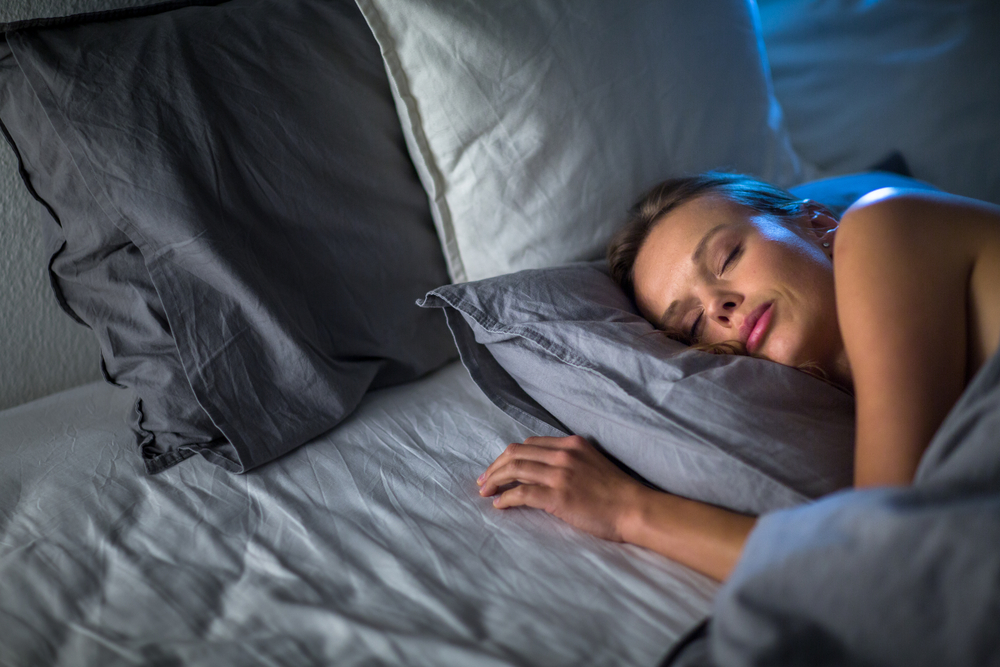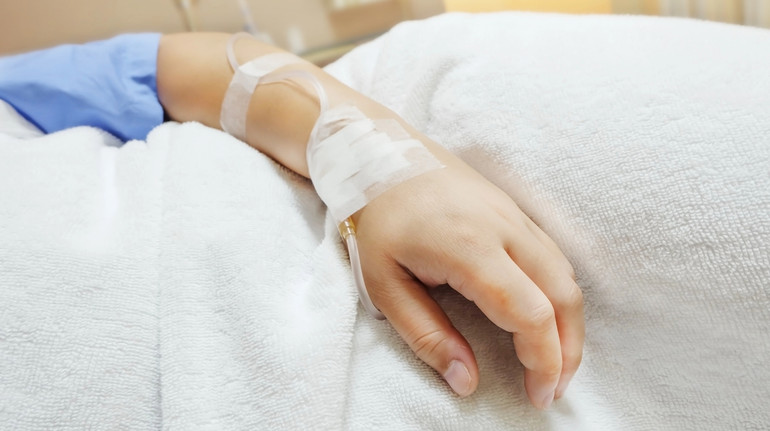Can insomnia disappear by itself? / Day

« Recently, I am not lying, » one of the most common complaints in the pharmacy seems to be the fact that Erika Petersone, a certified « Moon Pharmacy » pharmacist, is shared. « In many cases, insomnia can be solved without the help of a doctor, but it depends on the recognition of several problems and, consequently, ways to solve, where the key is to prevent severe sleep disorders. »
Even if it is decided to go to a family doctor or a neurologist with sleep problems, you should prepare well for the conversation. This preparation may already be sufficient to prevent some of the nuisance and regain healthy sleep.
The first thing the pharmacist advises to ask yourself if insomnia could be due to a recent change in everyday routine, which may also affect sleep, such as new working conditions in the evening hours or the number of sedentary hours has increased. Perhaps the cause of the difficulty of sleeping is stress in personal or professional life? If so, managing these changes along with good sleeping habits is likely to change the situation.
How to prepare for a visit to a sleep specialist
- Determine all the recent stress factors that may have worsened the quality of sleep.
- What changes do you have to improve to improve your sleep habits and what were success or challenges? Avoid screen light at night? Do you create the opportunity to sleep in a cool, quiet and dark room? Do you manage to create a sleep routine with consistent waking and bedtime?
- What are your knowledge and skills about changing, improving, improving your diet and physical activity habits?
- Alcohol consumption can also be affected by sleep quality. Don’t hide your doctor if you do, even if it’s just a glass of wine in the evenings!
- Any health problems, conditions and chronic illnesses can be associated with insomnia, as well as sleep can be affected by the treatment of these diseases – be prepared to tell it all.
The conclusion is that the treatment of insomnia often has to be addressed not only by insomnia itself, but also by their influencing situations and health conditions.
Let’s talk about the reasons for insomnia!
Here are some of the most common, health -related conditions that may be the cause of insomnia!
- Mental health conditions including depression, anxiety, use of addictive substances, post -traumatic stress disorders, etc.
- Chronic ailments including pulmonary diseases, high blood pressure, diabetes, cancer, chronic pain, heart failure and dementia.
- Other sleep -related factors such as sleep apnea, restless leg syndrome.
- An antidepressant side effects of medications such as steroids, central nervous system stimulants may be impaired sleep.
- Substances that promote insomnia, including alcohol, tobacco and caffeine.
By getting as much information as possible and knowing that the sleeping habits have already been corrected, your doctor may switch to the next level of treatment for insomnia. A sleep specialist may prescribe medication, and may also recommend other professionals, such as a behavioral therapist, a nutritionist, physiotherapist.
First aid found in the pharmacy
Eric Petersone emphasizes: « Usually after the first night of sleepless nights, people come to the pharmacy and want » something soothing « , preferring herbal products, including teas. If the tea has not given the expected effect, there is something more effective, but emphasizing that it is a natural remedy. Preparations that are created in chemical processes and really natural in the hollow. peppermint, lemon and amino acids. ”
The most popular ingredient
Many first aid over -the -counter products and nutritional supplements contain melatonin – sleep hormone. It is so widely used to solve their small sleep problems that it is worth looking at it in particular.
« The main thing to understand is that melatonin is not a stranger in the body. Although the drug is synthesized, its analogue is a hormone produced by the human body, so it is considered to be quite natural. Melatonin helps to reduce falling asleep. (No addiction), just like any preparation, including herbal teas, can be overdosed.
What are the recommended doses of melatonin?
The pharmacist says: “So far, experts have not determined how long melotanine in the form of a dietary supplement is used. The studies look at doses from 0.1 to 10 milligrams of melatonin. However, the overall view is that adults are usually a good amount to start with one to two milligrams.
There will be no universal doses. Just like many preparations, the body’s reaction may vary, depending on age, gender, seriousness of sleep problems and the factor that causes it, the duration of the use of melatonin, and other factors. «
When it comes to possible overdose, you should look at the maximum dose. The pharmacist admits that the highest limit in different sources of literature is slightly different, as there are different recommendations in each country. « The average dose of melatonin in Europe is approximately 2 mg. These doses are considered safe for health. However, it should be taken into account that individual reactions are possible. »
Melatonin overdose symptoms
Theoretically, any remedy can have a fatal consequence – a deadly dose, or LD 50. This term denotes the amount of substance that would cause 50% of people to death. The good news is that experts have not been able to determine the Melatonin LD 50. Even very high doses of melatonin in animals were not far from fatal. So, melatonin can be used without such fear, but definitely based on its instructions.
In rare cases, too much melatonin can cause unwanted side effects. The pharmacist lists the most common symptoms of overdose: a short -term depressive condition; easy excitement; tremor; abdominal cramps; impaired ability to maintain alertness; confusion or disorientation; Lower blood pressure. Melatonin can affect the cardiovascular and the central nervous system as well as skin condition.
Older people may be more sensitive to melatonin. This is because the age is naturally low in melatonin.
An allergic reaction to melatonin is also possible, but it is rare. There are some cases of anaphylaxis in the literature, which is a life -threatening allergic reaction, but this is the case. Signs of an allergic reaction can be similar to allergies in general – skin rashes (itchy, red, swollen, blisters or redness), wheezing, difficulty breathing, swollen mouth, face, lips, tongue or throat. If the allergic reaction occurs and is severe, medical attention should be taken. In mild cases, anti -allergic drugs – antihistamine.
« In most cases, there is no basis for great worry. Compared to other sleeping pills, melatonin is quickly assimilated in the body, so its effect is not long – it is giggling to do as falling asleep, then away and out of the body in the field!
Briefly about the interactions
Even if you buy an over -the -counter product that seems very harmless, ask the pharmacist for its possible interaction, including other medications used. Eric Petersone points out: « Melatonin may interact (reduce or enhance) with some anticonvulsants, anticoagulants and anti -combined drugs (drugs to prevent blood clots/thrombus), contraceptives, diabetes drugs, medications.
The pharmacist also reminds us the importance of adhering to sleep hygiene even before taking dietary supplements or medications. Here are the main recommendations!
- Go to bed until 11pm and spend 6-8 hours sleeping.
- Avoid caffeine -containing drinks in the late afternoon and evening.
- Limit the effect of bright light a few hours before sleep and do not use smart devices at least 30 minutes before bedtime.
- In the evenings, do relaxing activities (reading in another room, walking in the fresh air, drinking tea, etc.).
- The bedroom is well ventilated and maintained moderately warm or even cool.








